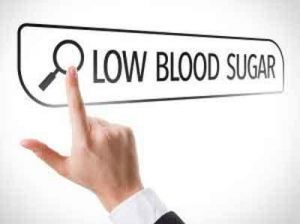- Home
- Editorial
- News
- Practice Guidelines
- Anesthesiology Guidelines
- Cancer Guidelines
- Cardiac Sciences Guidelines
- Critical Care Guidelines
- Dentistry Guidelines
- Dermatology Guidelines
- Diabetes and Endo Guidelines
- Diagnostics Guidelines
- ENT Guidelines
- Featured Practice Guidelines
- Gastroenterology Guidelines
- Geriatrics Guidelines
- Medicine Guidelines
- Nephrology Guidelines
- Neurosciences Guidelines
- Obs and Gynae Guidelines
- Ophthalmology Guidelines
- Orthopaedics Guidelines
- Paediatrics Guidelines
- Psychiatry Guidelines
- Pulmonology Guidelines
- Radiology Guidelines
- Surgery Guidelines
- Urology Guidelines
Low blood sugar episodes linked to sudden cardiac arrest in diabetes

Taiwan: Type 2 diabetes patients having hypoglycemic episodes (HEs) are at increased risk of sudden cardiac arrest (SCA) and ventricular arrhythmia (VA) than diabetes patients without HEs, finds a recent study published in the journal Diabetes/Metabolism Research and Reviews. Also, the use of insulin independently increased the risk of VA/SCA in patients with T2D.
The American Heart Association considers diabetes to be one of the seven major controllable risk factors for cardiovascular disease (CVD). Adults with diabetes are two to four times more likely to die from heart disease than adults without diabetes.
"Hypoglycaemia (low blood sugar) in patients with diabetes has a number of consequences, including increased macrovascular events, adverse clinical outcomes, and greater mortality, particularly in patients with a history of congestive heart failure and myocardial infarction. While several reports have indicated that HE may increase the risk of sudden death and arrhythmia in patients with diabetes, no large clinical study has yet determined the association between hypoglycemia and the risk for VA and SCA," wrote the authors.
Read Also: Primary prevention of heart disease, diabetes in patients at metabolic risk: Endocrine Society Guideline
Yu-Cheng Hsieh, from the Taichung Veterans General Hospital in Taiwan, and colleagues explored the relationships between hypoglycemia and the occurrence of both VA and SCA in a large population cohort. They hypothesized that HEs increase the risk of VA/SCA and that glucose‐lowering agents (GLAs) causing hypoglycemia may also increase the VA/SCA risks.
For the purpose, the researchers used data from the Taiwan National Health Insurance Database to identify patients aged ≥20 years with newly diagnosed type 2 diabetes. The risks of VA and SCA was compared in 1,037 patients with and 4,148 patients without a hypoglycemic episode. They were followed for a period of 3.3 years.
Read Also: FDA approves Dapagliflozin to reduce risk of Heart Failure in Diabetes
Key findings of the study include:
- 29 VA/SCA events occurred during a mean follow-up of 3.3 years.
- Compared with the control group, HE group had a higher incidence of VA/SCA (adjusted HR: 2.42).
- Patients who had used insulin for glycaemic control showed an increased risk of VA/SCA compared with patients who did not receive insulin (adjusted HR: 3.05).
There were two main findings in this study: (a) HEs in patients with T2D increased the risks of VA/SCA compared with those who did not experience HEs. (b) The use of insulin independently increased the risk of VA/SCA in patients with T2D.
More Information: "Hypoglycaemic episodes increase the risk of ventricular arrhythmia and sudden cardiac arrest in patients with type 2 diabetes—A nationwide cohort study" published in the journal Diabetes/Metabolism Research and Reviews.
DOI: https://doi.org/10.1002/dmrr.3226
Journal Information: Diabetes/Metabolism Research and Reviews

Disclaimer: This site is primarily intended for healthcare professionals. Any content/information on this website does not replace the advice of medical and/or health professionals and should not be construed as medical/diagnostic advice/endorsement or prescription. Use of this site is subject to our terms of use, privacy policy, advertisement policy. © 2020 Minerva Medical Treatment Pvt Ltd